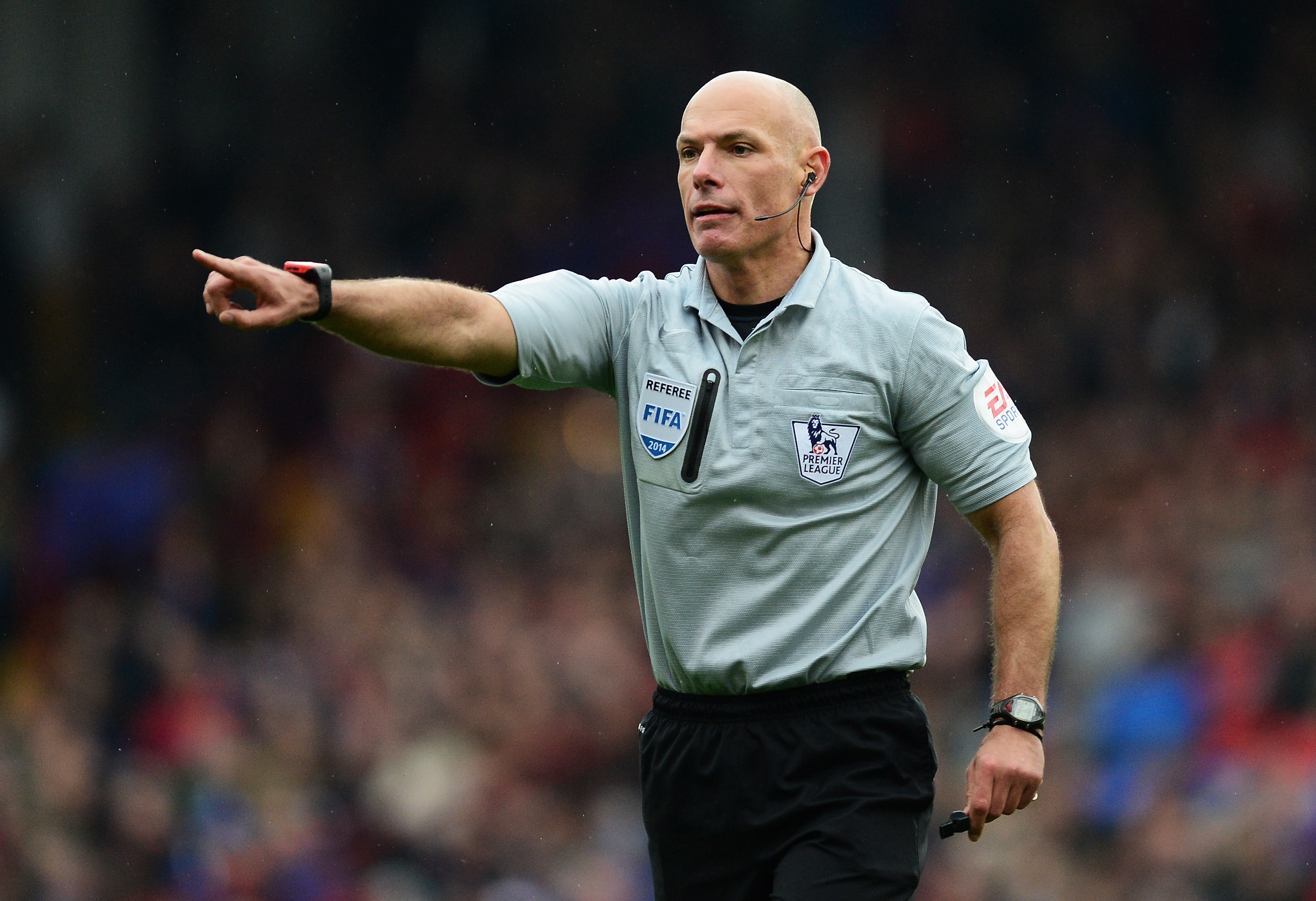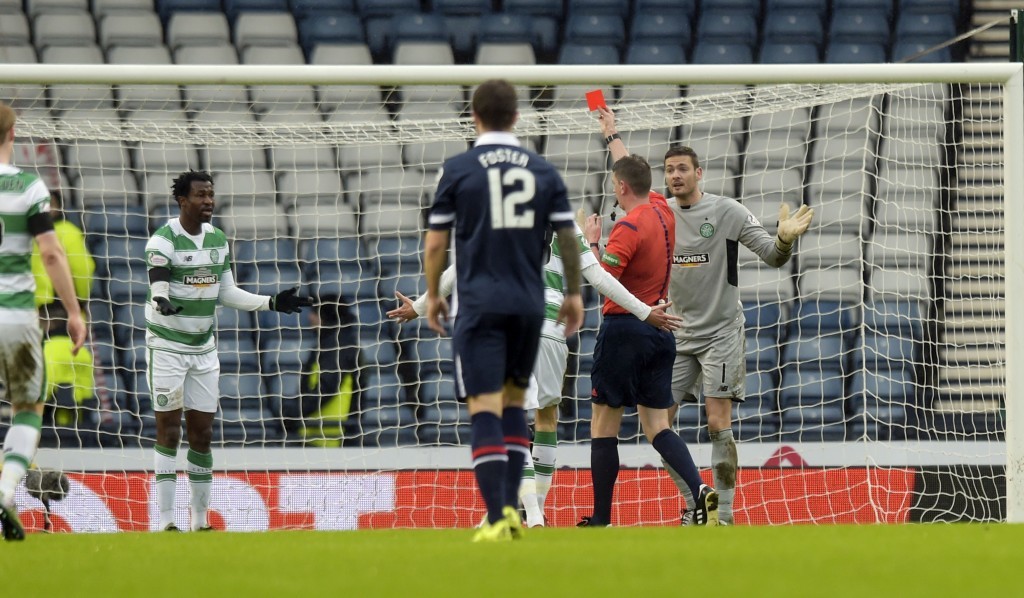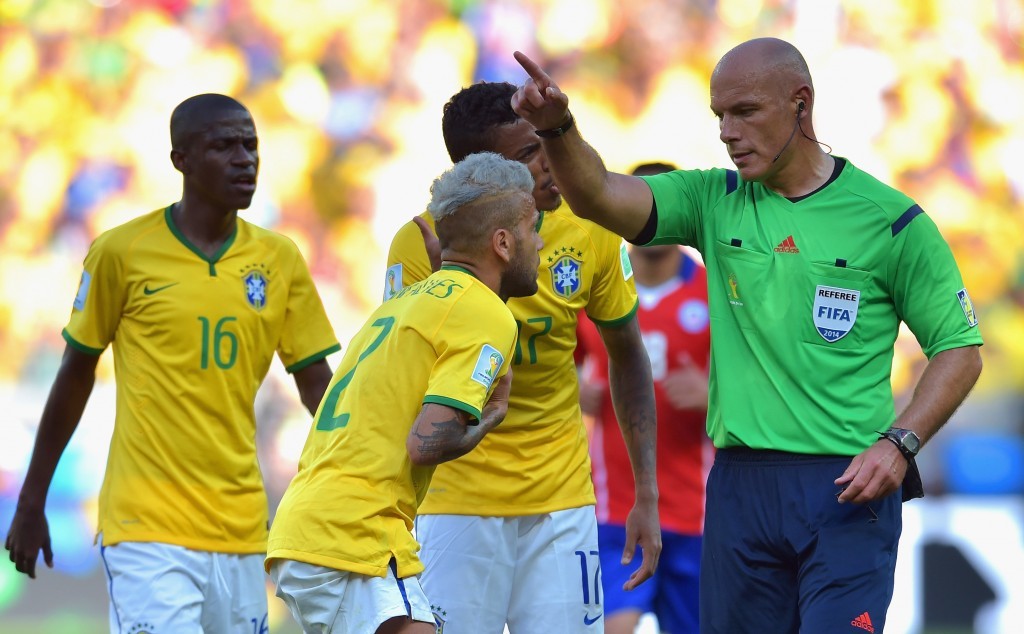
Once again, referees were criticised by players, managers, pundits and fans.
St Johnstone boss Tommy Wright felt experienced whistler Steven McLean was conned into giving Hibs a penalty after Liam Henderson tumbled inside the box. Jason Cummings scored from the spot and the Hibees won 2-1.
The following day, it was Craig Thomson’s turn to get it tight after he gave Efe Ambrose a straight red card, and Ross County a lifeline with a penalty kick. Jim McIntyre’s men beat Celtic 3-1.
A few days earlier, ref Barry Cook was slammed for giving Rangers midfielder Andy Halliday a second yellow card for a run-of-the-mill goal celebration in a win over Morton.
And on and on it goes.
It’s second nature to criticise officials. Much of the time it’s merited and other times it’s used by managers and players to deflect away from their own shortcomings.
Englishman Howard Webb has seen and done it all with a whistle. The former referee handled World Cup Finals and Champions League Finals, and was one of the most respected in the business until he retired in 2014.
Webb keeps a close eye on events in Scotland, and is in regular contact with referees supremo, John Fleming. Webb believes the men in black are easy targets and they need more help on the pitch to get decisions right.
Webb – who was mentored in his early days by Scotland’s former top referee, Hugh Dallas – told The Sunday Post: “I’m aware of the criticism of referees north of the Border.
“Listen, it’s the same the world over – referees need help. They don’t look for sympathy or praise. They just want people to be more understanding of the job they do.
“There has to be an acceptance from everyone that the game has moved on from what it was when it was founded in the 1860s as a hobby for people. It is now serious stuff and tens of millions of pounds can be at stake in a single game.
“Referees take it very seriously. They are in tip-top physical condition. They do analysis of their performances and they also use sports psychologists.
“But, despite all of their improvements, the game is now too quick for the naked eye. Football is now a ‘win-at-all-costs’ game and that makes it more difficult for referees and their assistants. Whatever the authorities can do to help, they must do it.
“Of course, I don’t mean stop the game every 30 seconds to consult a television monitor, but you get where I’m coming from.
“For example, the introduction of goal-line technology has been very helpful. But there is so much more to it.
“In football, compared to many other sports, it’s more prevalent to blame the referee.
“He, or she, is an easy target, and it’s very convenient when a team drops points or loses a game. A lot comes down to respect and education of the game and the rules.”
Webb received his share of criticism. He retired early after feeling he wasn’t getting the same enjoyment and satisfaction from his profession, and was a big loss to the English and European game.
He stressed: “When I was a referee – and I’m sure I speak for all refs – you become addicted to trying to be successful.
“It’s a great feeling to get big decisions right. It was also great to come off the park and nobody was talking about you. That’s when you knew you’d performed well.There are many highs and I was lucky enough to sample a few, but there were lows and the lows grind you down. I decided I’d had enough.
“I felt privileged to have been a referee for many years. I wanted to be a footballer but wasn’t good enough and my dad encouraged me to go into refereeing.
It was great to move through the levels and be a part of so many professional games.”
Another major influence on Webb’s career was former top Scots ref, Dallas, who was fourth official at the 2002 World Cup Final in Japan. In his role at UEFA, Dallas tutored the Englishman.
Webb said: “If I ever write a book, then Hugh will feature prominently. He is probably in my top four of most significant men in my career.
“When I went on the approved UEFA list in 2005, Hugh was assigned to me to be my mentor. His guidance, knowledge and encouragement really helped me to perform on the European stage, a platform very different to the English game I was used to.
“Hugh told me how to adjust my approach, be aware of my body language, how to dip in and out of a game and about managing the tempo of a game because it was so different depending on the nation you were refereeing in.
“I’ve so much to be thankful for. Hugh was a first-class referee and a first-class mentor.”
So, does Webb miss being the man in the middle?
He smiled: “I’m happy doing my television work, and I’m involved in other things. I’m happy and focused. I made the right decision.
“I do miss some of the banter with the players and the managers. Many of them were very good to deal with and I had good professional relationships with Sir Alex Ferguson and Davie Moyes.
“I also found that referees had much in common with goalkeepers. You could do well for 89 minutes and then be remembered for a costly mistake in the last minute.
“So I had a good rapport with the likes of Tim Howard, Brad Friedel, Joe Hart and Paul Robinson.”
Except when he gave penalties against them!

Enjoy the convenience of having The Sunday Post delivered as a digital ePaper straight to your smartphone, tablet or computer.
Subscribe for only £5.49 a month and enjoy all the benefits of the printed paper as a digital replica.
Subscribe
